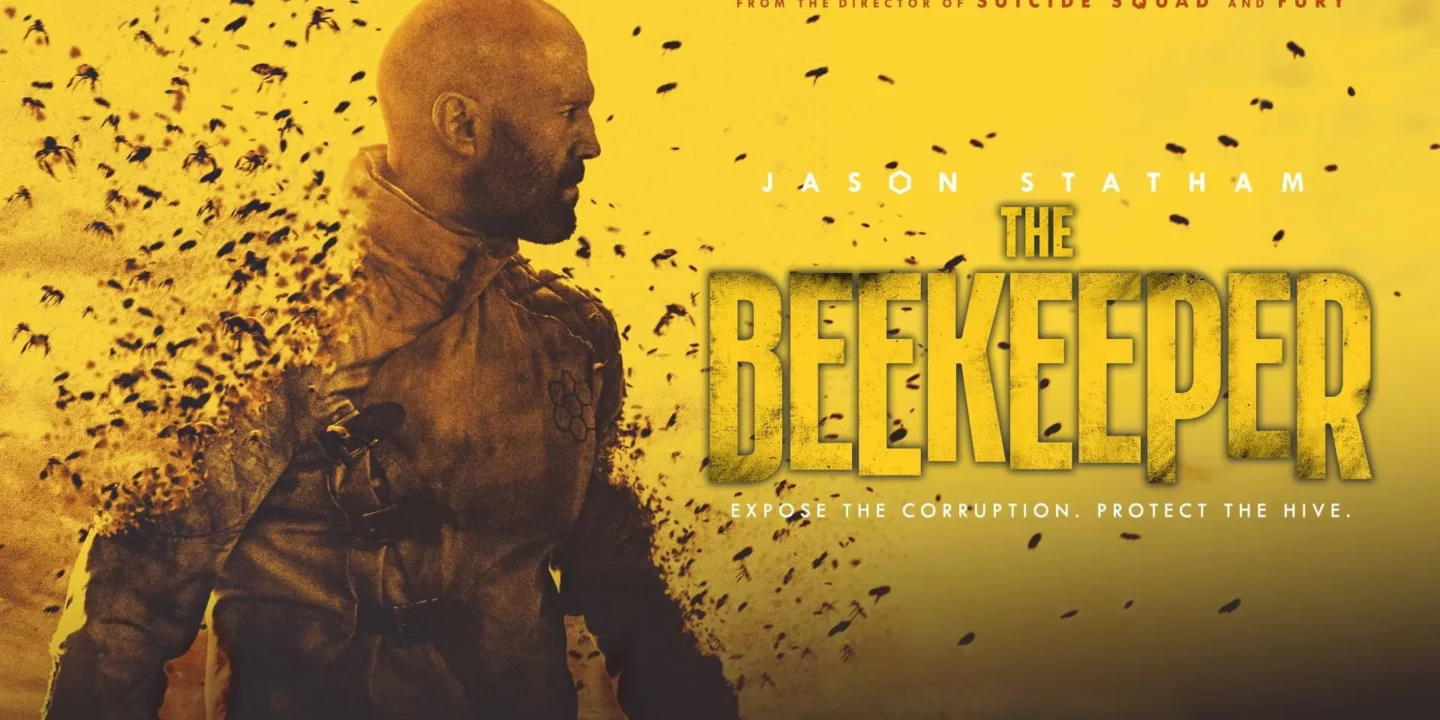
“The Beekeeper” epitomizes the best kind of bad movie—a film that prioritizes entertainment over pretentiousness, embracing the laughter that comes with its unabashedly ludicrous, ultra-violent premise. Starring Jason Statham in a self-parodying role, this conspiracy-laden action extravaganza stretches its central metaphor to comedic extremes. Statham plays Adam Clay, a retired government assassin turned benevolent beekeeper, whose peaceful life is shattered after his landlady Eloise (Phylicia Rashad) falls victim to an online phishing scam.
From the outset, “The Beekeeper” revels in its absurdity. Director David Ayer opts for fun over realism, portraying Clay as the ultimate enforcer whenever America’s flawed systems need a correction. The stylish opening credits juxtapose serene footage of honeybees with ominous images of six-sided buildings, hinting at a shadowy organization called “the Beekeepers” tasked with upholding societal integrity.
The film blurs the lines between ancient Illuminati-like enforcers and modern national security, all while casting English actors in key American roles, including the U.S. president. Such details, though eyebrow-raising, take a backseat to the film’s energetic pace and Statham’s deadpan delivery, which punctuates every over-the-top action sequence.
As Clay embarks on a vengeful spree against those responsible for Eloise’s plight, traditional law enforcement proves inept, leaving him to dismantle a cybercrime ring single-handedly. His methods, from incendiary confrontations to gallant attempts at redemption, paint him as an unlikely hero navigating a web of high-stakes intrigue.
Themes of “kicking the hornet’s nest” and “protecting the hive” (despite entomological inaccuracies) underscore Clay’s relentless pursuit of justice, culminating in confrontations that reach the highest echelons of power. Whether interpreting the film’s political allegories as brilliant satire or sheer nonsense depends on one’s appetite for far-fetched conspiracy theories.
Statham, true to his action-hero brand, embodies Clay with trademark intensity, even as the character’s transition from ruthless assassin to bee enthusiast strains credibility. Yet, the film’s commitment to style over substance aligns it with post-“John Wick” sensibilities, where stylized violence and outlandish scenarios reign supreme.
Ayer’s direction shines brightest in the film’s action sequences, where Statham dispatches hordes of goons with cinematic flair. Each showdown is meticulously choreographed, serving as a showcase for Clay’s unrelenting determination and the film’s disregard for conventional storytelling logic.
In the end, “The Beekeeper” may not offer deep psychological insights or intricate plotting, but it delivers on its promise of mindless entertainment. It’s a film where a renegade beekeeper wielding a gun against the president becomes a ludicrous yet oddly compelling allegory for societal discontent.






